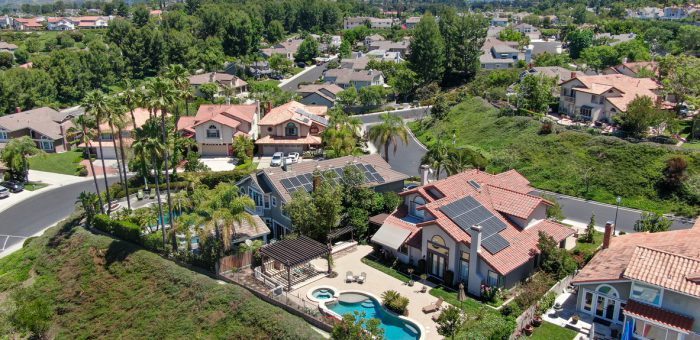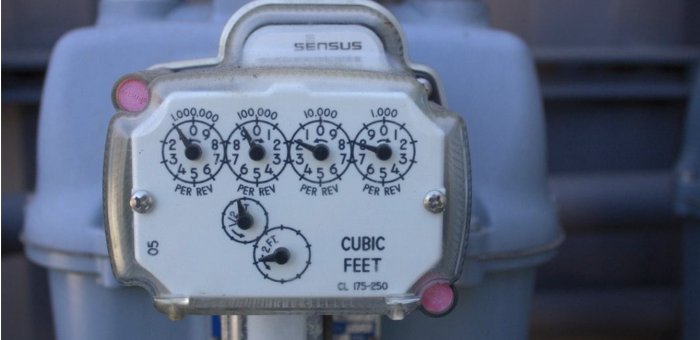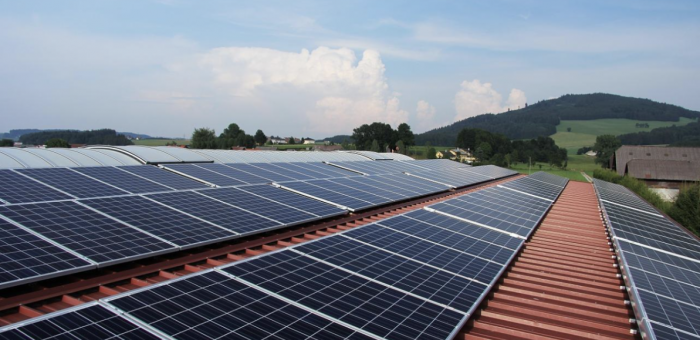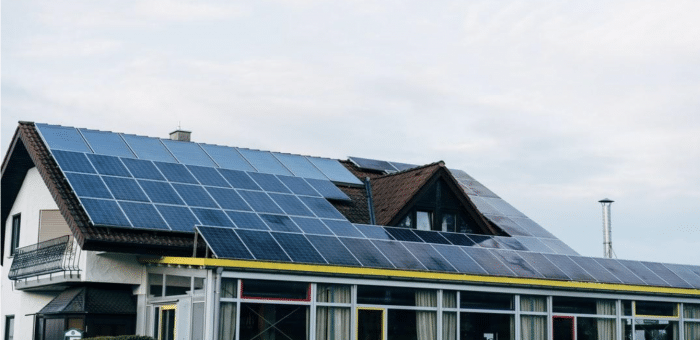A backyard swimming pool lets you beat the scorching afternoon heat while enjoying the privacy of your home. On the downside, pools have huge installation costs and electricity demands. Therefore, if you want to enhance the elegance of your backyard with a pool, keep in mind its maintenance cost.
Homes with swimming pools consume on average 50% more electricity compared to homes without one. Your home’s energy prices increase during summer due to additional air conditioning costs in the house. The pool can cause considerable rises in electricity costs if you are a new pool owner.
The good news is that you can reduce your annual electricity bills by upgrading to an energy-efficient pool. You can also check new electricity plans to find a more affordable electricity rate and reduce your pool electricity costs.
The driving contributors to energy costs of swimming pools
How much electricity does a pool use? Different types and components of a pool lead to differences in energy consumption. Features in the heating and filtration systems, such as the pool’s heaters and pumps, are key significant contributors to pool ownership costs.
1. Pool heating
As temperature changes occur during the day, pools lose heat through evaporation. Pool heating is necessary to maintain optimal water temperatures for swimmers. Common types of pool heaters include heat pumps and gas pool heaters.
A heat pump has a similar functioning mechanism as an air conditioner. Pool heat pumps use electricity and rely on atmospheric conditions to keep the pool warm or cool. However, in extreme temperature conditions, heat pumps overwork, thus reducing your household’s energy efficiency.
Gas pool heaters utilize gases to generate and retain heat within a short timeframe. They are, therefore, a quick but costly solution to heating pools in varying climatic conditions. Other factors that increase pool heating costs are the pool heater’s size relative to the pool’s surface area. Using small heaters for large swimming pools can be slow and result in more energy wastage than larger heaters.
Therefore, before purchasing a pool heater, you should consider your region’s climate and pool area. Switching off pool heaters when the pool is not in use is also a great way to manage swimming pool temperatures and heating costs.
2. Pool cleaning via a pool pump
Pools utilize a pump to circulate water and keep the water safe and clean. Pools collect all sorts of dirt from people and the environment. A pool pump has a motor that generates pressure to enable the filtration system to filter bacteria and dirt.
Water flow ensures that the pool water is not stagnant, thus inhibiting the growth of algae. The period and the number of times you run your pool pump affects your energy consumption. Energy bills are more likely to shoot up when the pump runs for many hours. It is crucial to know the water volume of your pool to determine how long the pump should be on.
You can keep your pool pump active during non-peak electricity hours to avoid extensive energy usage.
What else can impact the energy consumption by your pool?
Besides heating and cleaning the pool, other factors that can increase your pool electricity bills include:
The size of your pool
Homes with a large swimming pool incur more annual electric costs than those with a smaller swimming pool. A large pool’s filtration and sanitation system requires more time and energy to run. For example, a smaller pool may utilize a small filter pump which uses less energy. In contrast, a bigger pool will require a larger pump which uses more energy.
Larger pools are also vulnerable to losing more heat due to their large surface area. On the other hand, smaller pools lose less heat and thus are a cheaper energy option.
Where your pool resides
The physical location of your pool also impacts its monthly electricity costs. A pool that gets constant direct sunlight can absorb and maintain more heat energy, thus lowering the heating costs of a pool.
If your pool is near trees, the shade provides cool temperatures around the pool area. As a result, a heat pump uses more electricity to maintain warm water temperatures.
Leaves and twigs from trees can also be a source of dirt in your swimming pool. Proximity to other sources of debris like nearby construction sites increases the risk of dirt accumulation. The build-up alters your filtration system’s performance, forcing the pump to overwork. Recirculating water many times is also energy demanding and can increase utility bills.
Variable speed pump vs. single speed
How much electricity does a pool pump use? The cost of running in-ground pools depends on your choice of pool pump.
A variable speed pump is adjustable and can run at the set speed. Usually, the pump uses low speed to perform various pool maintenance processes, thus consuming less electricity. The variable speed pump has an efficient magnetic motor that produces less noise and is more environmentally friendly.
Single-speed pool pumps are large and typical in conventional swimming pools. A one-speed pump has a less efficient motor that operates at a higher speed, increasing energy usage. They are also noisy and produce substantial carbon emissions.
Pool pumps are the leading contributors to high energy consumption by pools. You can use a pool pump electricity cost calculator to determine your daily, monthly, and annual costs. This step will help you make energy-conscious decisions by choosing the most efficient pool pump and affordable power suppliers.
What can you do to make your pool more energy efficient?
An excellent way to reduce your pool’s energy consumption is to replace one-speed pumps with energy star-rated variable speed pumps. According to the U.S. Department of Energy, variable pumps are more economical and can save you hundreds on your annual energy bills. Instead of running your pump continuously throughout the day, consider setting a timer for shorter and more efficient pumping cycles.
Preventing heat loss from your pool improves its energy efficiency. Using pool covers at night and when the pool is not in use retains heat, thus lowering the energy demand of pool heating. You can also reduce the evaporation of heated water and heat loss by creating a wind barrier.
Use a cleaner and cheaper pool heating technology, such as solar pool heating systems. A solar heating system uses solar collectors to absorb heat energy from the sun to warm your pool. However, they are often more efficient during hot seasons when the sun’s energy is abundant. Also, consider switching to clean and energy efficient lighting systems around your pool, like light emitting diodes and solar lighting.
Maintain the cleanliness of the filtration system. Cleaning filters eliminate excess dirt, ensuring peak performance of the filtration system and prolonging the pump’s lifespan. You can also consider installing large pump filters that clean flowing water over an increased area with less strain.
Make adjustments to increase your monthly and annual savings
Owning a swimming pool allows you to enjoy unlimited fun during scorching summer months but racks up considerable maintenance costs. Pools consume a lot of electricity through equipment such as pumps, heaters, and lights. If you want to make a notable change in your household energy bills, you might want to reduce your pool electricity costs first.
Power Wizard wants you to get back to enjoying your pool and less worrying about your electricity bill. Check out our electricity plans comparison tool to find the best electricity rate so you can save money and enjoy the summer at the pool.
More From the Power Wizard Blog
-
Affordable Electric Bill: Power Wizard’s Promise of Protection
Sarah, a proud Texan, knows that everything is bigger in Texas – including the choices when it comes to electricity providers. She’s no stranger to the complexities of deregulated energy markets. With a bustling household, she juggles work, family, and keeping the lights on. But there’s one thing Sarah doesn’t want to juggle: her electric bill. […]
View Article -
Vampire Energy: How Phantom Power Drains Your Wallet and the Environment
Imagine your home filled with silent energy sippers, lurking in the shadows, unnoticed yet constantly draining power and your wallet. Vampire energy, or phantom load, refers to the electricity electronic devices consume, even when turned off or in standby mode. These energy vampires are prevalent in every household and workplace, from the charger left plugged […]
View Article -
The Top Sources of Carbon Emissions in the U.S.
Climate change due to rising global temperature seriously threatens the natural ecosystem. It can result in erratic weather featuring intense drought, heat waves, melting ice caps, warming oceans, and increased storms when left unchecked. As the impact of climate change worsens, the risk of biodiversity loss and human extinction gets bigger. Table of Contents What […]
View Article -
California Solar Tax Credit & Incentives for Residential Rooftop Solar
Are you considering investing in residential solar panels in California? You’re not the only one. Research shows that California was ranked number one out of 50 states in 2022 for solar power generation, with more than 11 million homes powered by the sun. A major reason why solar power is popular statewide is that prices have dropped […]
View Article -
What Should You Include in an Energy Efficiency Audit?
Rising energy costs mean higher electricity bills, and for the average homeowner or business, a little savings each month can add up to extra cash at the end of the year. If you’re looking for ways to reduce your home’s energy consumption, performing a home energy audit is a great place to start. Table of […]
View Article -
How to clean your solar panels
Click on a section to skip directly to it: Why is it important to clean your solar panels?Solar panel cleaning: a step-by-step breakdownMake sure you’re saving the most on your monthly energy bill Have you considered installing a renewable energy source at your home? Power Wizard recommends trying solar energy, which accounts for 3% of […]
View Article -
How to Reduce Your Carbon Emissions
Click on a section to skip directly to it: Why is it necessary to lower carbon emissions?Steps to take to minimize your carbon emissionsReduce your carbon emissions with carbon offsets Carbon emissions refer to the measure of the impact of human activities on global warming and climate change. Every person on the planet contributes, directly […]
View Article -
Solar Energy Credits: Everything You Need to Know
Solar panels are a great way to save money. They are energy efficient and reduce the impact of electricity production on the environment. You can get them installed on the roof of your house to reduce your reliance on the electric grid. Once installed, solar panels help passively produce energy from the sunlight — as […]
View Article













